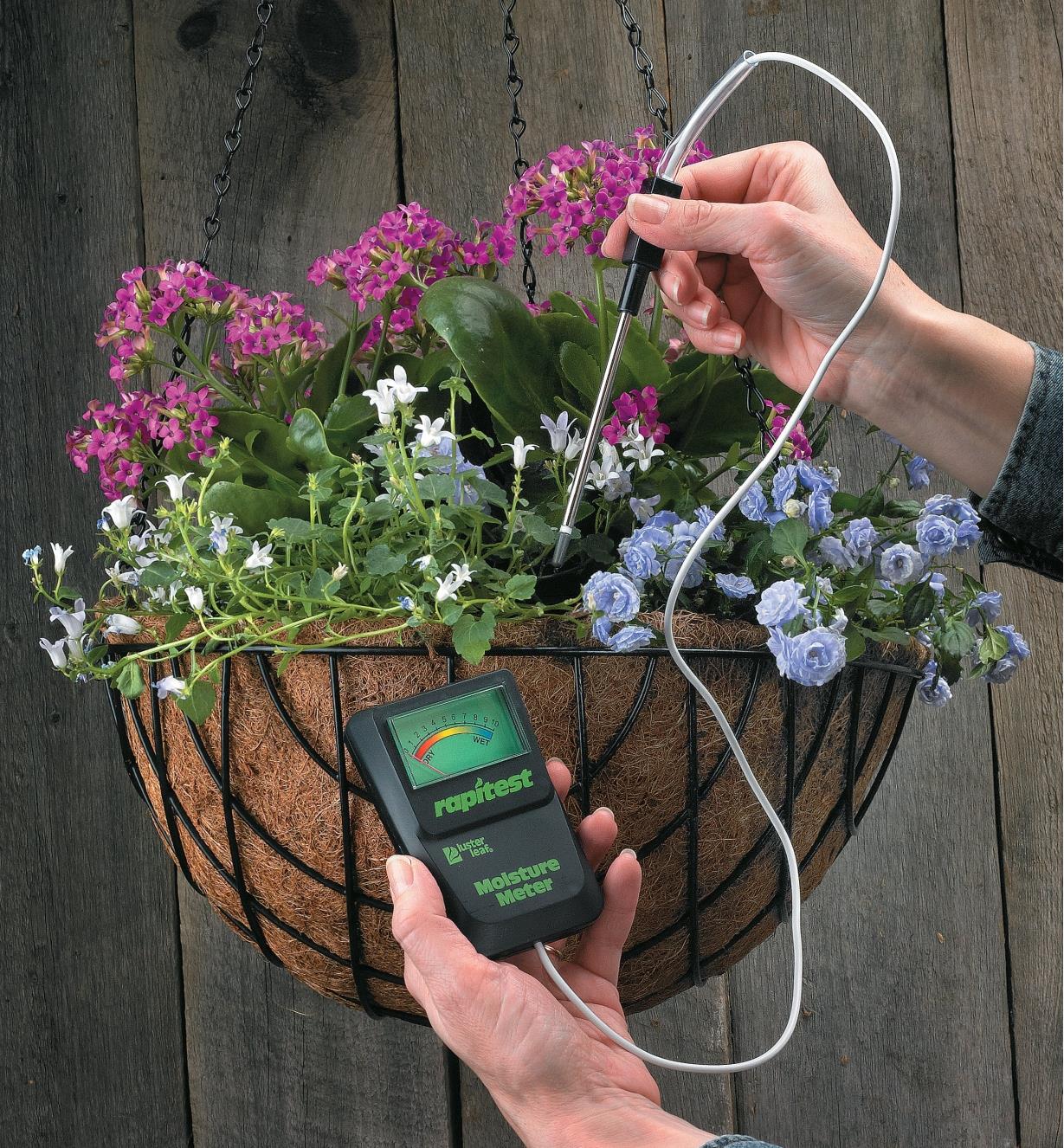The Science Behind Moisture Meters: How They Function and Why They're Essential
The Science Behind Moisture Meters: How They Function and Why They're Essential
Blog Article
The Ultimate Guide to Dampness Meters: A Comprehensive Introduction and Exactly How They Can Save You Cash
In the world of structure maintenance, construction, and numerous markets, the significance of accurately gauging wetness levels can not be overemphasized. Wetness meters serve as essential tools in detecting and monitoring moisture web content in materials, aiding in protecting against pricey problems and guaranteeing the quality of products. Recognizing the nuances of various sorts of wetness meters, their applications, and the prospective cost-saving benefits they use can be a game-changer for professionals and businesses alike. Discovering how these devices can not just enhance procedures however additionally add to financial savings is a trip worth embarking on.
Kinds of Dampness Meters
One usual type is the pin-type dampness meter, which gauges the electric resistance in between 2 pins placed right into a product. Pinless moisture meters, on the various other hand, use electromagnetic sensing unit plates to check a bigger location without triggering damage to the material's surface.

Furthermore, there are also specialized dampness meters made for particular products like dirt, hay, or grain. These meters provide precise dampness analyses tailored to the unique buildings of the material being tested. Infrared wetness meters measure the thermal properties of a product to determine its wetness content non-invasively, making them valuable for applications where pin or pinless meters may not be suitable. Recognizing the different sorts of moisture meters readily available can help sectors choose one of the most appropriate device for their specific wetness dimension requirements.

Benefits of Utilizing Wetness Meters
Wetness meters supply important benefits in properly evaluating and checking wetness degrees in varied materials and atmospheres (Moisture Meter). Among the key benefits of using wetness meters is the avoidance of possible damages brought on by excess moisture. By discovering and resolving high dampness degrees early on, wetness meters assist to avoid mold and mildew development, rot, and structural damage in buildings, saving both money and time on fixings. Additionally, wetness meters help in making sure the top quality of products throughout building or production processes. By accurately measuring moisture content, these tools aid preserve the stability of wood, drywall, concrete, and other materials, decreasing the risk of defects or failures.
Additionally, using dampness meters can cause enhanced energy performance. By determining areas with high dampness levels, such as leakages or bad insulation, adjustments can be made to boost power conservation and lower utility prices. In farming settings, wetness meters play an important role in maximizing crop returns by allowing farmers to monitor dirt moisture degrees and make informed watering decisions. On the whole, the advantages of using dampness meters cover across numerous sectors, offering cost-effective remedies and promoting far better quality control techniques.
Exactly How to Choose the Right Wetness Meter
Selecting the ideal wetness meter involves taking into consideration crucial factors such as product compatibility, measurement array, and calibration accuracy. When choosing a dampness meter, it's vital to guarantee that the meter is suitable for the details product you will be screening. Various materials have differing electric residential or commercial properties that can impact Source dampness readings, so picking a meter developed for your product is critical for precise results. Furthermore, consider the measurement array of the wetness meter. Make sure that the meter can identify dampness degrees within the variety needed for your applications. Calibration precision is an additional essential aspect to bear in mind. Go with a dampness meter with trustworthy calibration to make certain precise and consistent analyses. Some meters may need periodic calibration adjustments, so comprehending the calibration procedure is very important. By very carefully examining these factors, you can choose a moisture meter that satisfies your requirements and provides exact wetness dimensions for your jobs.
Appropriate Techniques for Dampness Meter Usage

Cost Savings Via Wetness Meter Applications
Just how can the calculated application of dampness meters lead to considerable price savings across different markets? In the agriculture market, moisture meters help in identifying the ideal time for gathering plants, protecting against excess or over-drying dampness that can impact the final product's high quality.
In a similar way, in construction, dampness meters assist avoid expensive damages by discovering dampness degrees in building products, such as wood or concrete, which can lead to architectural issues otherwise dealt with quickly. By recognizing trouble locations beforehand, service providers can take rehabilitative steps to avoid extensive repairs or click this link replacements, eventually saving time and cash.
Moreover, in the food handling sector, moisture meters are vital for monitoring product top quality and ensuring compliance with security policies. By precisely determining dampness web content in food, suppliers can stop perishing, preserve quality, and minimize waste, resulting in considerable expense savings. In general, the critical application of dampness meters is a beneficial investment that can bring about significant price reductions and improved efficiency throughout various markets.
Final Thought
In final thought, dampness meters are beneficial devices for detecting and determining moisture degrees in different materials. By utilizing the best wetness meter and following proper methods, users can successfully prevent costly problems created by excess moisture.
Moisture meters offer as important devices in detecting and checking moisture web content in materials, assisting in stopping expensive problems and making sure the high quality of products. Infrared moisture meters determine the thermal buildings of a product to determine its moisture content non-invasively, making them helpful for applications where pin or pinless meters may not be appropriate.Wetness meters supply vital benefits in accurately keeping track of and examining wetness degrees in diverse products and atmospheres. In farming setups, dampness meters play a crucial function in maximizing plant yields by allowing farmers to keep an eye on dirt moisture levels and make notified watering choices.In final thought, moisture meters are useful devices for spotting and measuring wetness levels in various materials.
Report this page